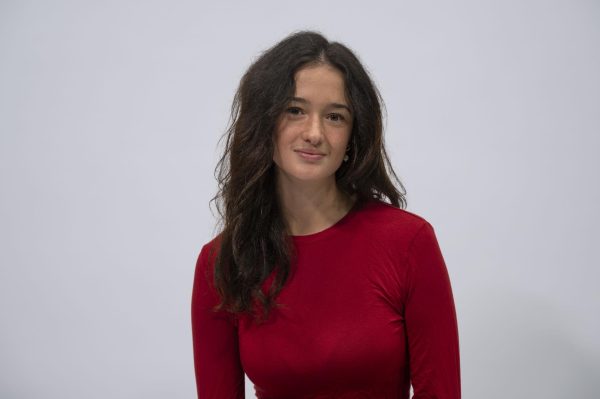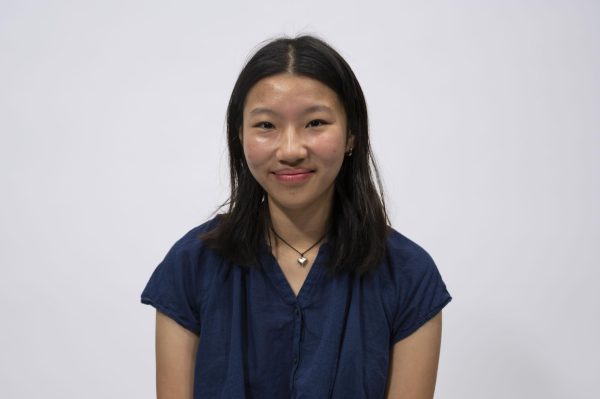On Feb. 24, days before the start of Northeastern Social Justice Resource Center’s “Peace and Social Justice Week,” university administration informed all organizations participating that outside community members would not be allowed to attend keynote events.
Weeks later, the Interrobang Poetry club, which describes itself as “dedicated to social justice in the arts” and which had scheduled programming for Peace and Social Justice Week, published an open letter to the university condemning the decision and demanding an explanation for the restrictions placed on its open mic event, as well as the other events of the week.
The club prides itself on creating an inclusive space for Northeastern community members, as well as those in the greater Boston community, its members say.
“NEU is attacking, silencing and policing BIPOC spaces and voices on campus. This requires reparation and remediation. Northeastern admin have [sic] not even been able to provide basic communication,” Interrobang wrote in a March 15 Instagram post.
The post continues, stating “a grossly disturbing police presence was reported outside of events.”
Peace and Social Justice Week, which occurs each winter, is “an opportunity for the Northeastern community to engage in dialogue, reflection and action,” according to the Social Justice Resource Center’s, or SJRC, website. The week, scheduled to start Feb. 26 and last until March 1 this year, included events with multiple student organizations including the Sexual Health Advocacy, Resources and Education group, Huskies Organizing with Labor and the Student Alliance for Prison Reform. Historically, the week’s events have been open to the community outside of Northeastern.
The SJRC, was notified of the policy change Feb. 23 in an email from Northeastern administration. The center told participating organizations of the restrictions by email Feb. 25, the day before events began.
The university did not provide a reason behind the choice to close off events to the public.
“The SJRC was notified on Friday, 2/23, that our keynote events can now only be open to Northeastern members with NU IDs, which means that non-NU community members will not be allowed to our events. Because we already publicized both events as open to the public we wanted to communicate to you that this is no longer the case,” the email to organizations participating in the week, which The News obtained, reads.
This move by the administration meant that attendees, as well as speakers from the outside community — including Porsha Olayiwola, Boston’s Poet Laureate — would no longer be allowed to attend.
“Please know we very much value your support and community partnership. I am conscious that some community members planned to take time out of their busy day to attend these two events. Thank you for your willingness to support us in this way,” the email from SJRC states.
In its letter to the administration, Interrobang asked the school why it is “attacking spaces that support vulnerable and marginalized students,” “silencing discourse” and “worsening …i ts relationship to neighboring communities.”
“While our organization serves as Northeastern’s official slam poetry club and has worked energetically to foster an on-campus poetry community for nearly a decade, we also see ourselves as fundamentally part of the wider Boston writing community,” the group’s letter said. “Through all the years of our existence, our work has always been focused on building bridges, serving and learning from our neighbors.”
Interrobang members said that without a clear reason for the change from the university, the move could mean a worsened relationship between the school and the outside community.
“In terms of the relationship Northeastern has to its surrounding communities, it’s kind of an indication of the trend that we are going to be more closed off — that we will be more exclusionary to our neighbors,” said Patricio Pino, Interrobang’s scheduling coordinator and a third-year English and cultural anthropology combined major. “That worries me a lot as a student and is a source of harm for racial justice and the city.”
Disappointment over the lack of responsiveness from the university and this decision’s impact on certain communities was a pivotal concern for the club.
“That such a development has occurred without proper communication or consultation with the campus community and that it is targeting events headlined by women of color committed to urgently needed social justice work — demands explanation and reparation,” the club’s letter said.
Club members sought not just an explanation but a continued effort from the administration toward holding conversations surrounding decisions and events like these.
“I think we really aim to provide spaces where everyone feels welcome, and this doesn’t contribute to that at all,” said Jayla Tillison, a fifth-year civil engineering and architecture combined major and president of Interrobang. “I think that no matter what your stance is, there should always be a dialogue.”
The university did not respond to questions from The News about why the decision to close events to outside community members was made and whether the administration had a response to Interrobang’s letter in time for publication.
“We are somewhere where that dialogue can be had, and essentially by silencing voices, we are removing that opportunity for people to be present in this discussion,” Tillison said.












